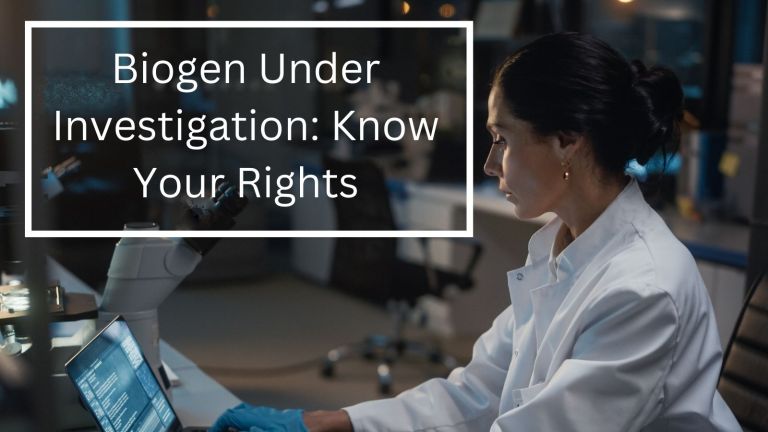At the end of every month, the SEC publishes a Notice of Covered Action (NOCA) for all recent enforcement actions with sanctions exceeding $1 million. This month the SEC published thirteen NOCAs which featured over $293 million in sanctions.
Once a NOCA is published, any whistleblower who provided information to the SEC on the case has 90 days to claim a whistleblower award by filing a Form WB-APP. If a whistleblower fails to file the Form WB-APP in time, they lose their award. With $293 million in fines noticed this month, there is over $88 million (30%) in whistleblower awards up for grabs.
Here’s a summary of the NOCAs from this month which feature; a wedding in a French Chateau, trips to Disney, luxury cars and a private plane:
According to the SEC, the defendants cold-called prospective investors and convinced them to purchase shares of the microcap companies. The prices and volumes of the sales matched those of shareholders who were paying the defendants to promote the stock. The monetary penalty for this conduct will be decided by the court.
According to the SEC, Charles Schwab operated a robo-adviser portfolio for its investors. Schwab stated that the robo-adviser would seek “optimal return[s].” In reality, under most market conditions, the cash in the robo-adviser portfolios would cause clients to make less money even while taking on the same amount of risk. Meanwhile, Schwab made money from the strategy by using it to obtain client money which it profited from loaning it out. To settle the charges, Schwab agreed to pay $187 million.
According to the SEC, Equitable Financial Life Insurance Company provided account statements to about 1.4 million investors that mislead them about fees they were charged. Equitable agreed to pay $50 million to harmed investors, most of whom were public school teachers and staff members.
- Stephen G. Waldis (Synchronoss)
Synchronoss Technologies, Inc. and seven senior employees, including the former CFO, were charged for accounting improprieties; Synchronoss acknowledged that it had accounted for numerous transactions improperly and thus filed misleading financial statements. The company settled the charges for $12.5 million and a number of executives are facing trial.
The SEC charged Matthew J. Skinner and five entities he owns and controls (Empire West Equity, Inc.; Bayside Equity, LP; Longacre Estates, LP; Freedom Equity Fund LLC; and Simple Growth, LLC) for conducting fraudulent real estate investment offerings. The SEC contends that Skinner told investors their money would be used to finance specific real estate projects or investments, but instead was spent on personal expenses, such as European vacations, a Maserati and an Aston Martin. The SEC also alleges that Skinner used investor money to make Ponzi-like payments to other investors. The charges have not been settled and no monetary sanctions have been announced.
The SEC charged husband and wife Zhuobin (“Ben”) Hong and Caixia Jiang in a multi-million dollar insider trading scheme involving the securities of Sagent Pharmaceuticals, Inc. According to the SEC’s complaint, Hong and Jiang purchased large amounts of Sagent securities in advance of a July 11, 2016 announcement about the company’s acquisition. Hong and Jiang, who are now in China, attempted to evade detection by trading through accounts held in the names of relatives in China. The charges have not been settled and no monetary sanctions have been announced at this time.
The SEC settled charges against Private Advisor Group, LLC for breach of fiduciary duty to advisory clients. The SEC found that PAG invested clients money in higher-cost funds to avoid paying transaction fees it would have to bear. As a result, the clients paid more so that PAG would pay less. PAG settled the charges for $5.8 million.
According to the SEC, UBS marketed and sold a complex investment product to investors but did not provide financial advisors with adequate training and oversight in the strategy. Despite UBS recognizing the possibility of significant risk in the investments, it failed to share this data with advisors or clients. When investors suffered losses, many of them, along with their financial advisors, expressed surprise and closed their accounts. UBS settled the charges for $25 million.
The SEC charged Health Insurance Innovations (HII) and its former CEO Gavin Southwell for miss-selling health insurance products and then concealing extensive consumer complaints from investors. The charges were settled for $12 million.
The SEC charged Sky Group USA LLC, and its CEO, Efrain Betancourt, Jr., for fraudulently raising at least $66 million through the sale of promissory notes to retail investors, including members of the South Florida Venezuelan-American community. According to the SEC’s complaint, Sky Group and Betancourt falsely told investors that Sky Group would use investors’ money solely to make payday loans when, in reality, Betancourt misappropriated millions for personal use – including for a lavish wedding at a chateau on the French Riviera (ooh la la!), vacations to Disney resorts and the Caribbean, costs associated with the purchase of a luxury Miami condo, and service on his personal Piper airplane. Betancourt is also alleged to have transferred at least another $3.6 million to friends and family. The charges have not been settled and no monetary sanctions have been announced at this time.
According to the SEC, NIT Enterprises, its CEO Gary R. Smith, Jason M. Ganton, and James E. Cleary, Jr., raised $4.9 million from investors while making material misrepresentations that NIT was raising money to fund the company’s efforts to develop its radiation protection products. In contrast, the SEC alleges that Smith misappropriated $1.25 million of the funds raised to pay for personal expenses. The SEC’s complaint further alleges that the defendants made baseless promises of NIT’s future profitability, imminent initial public offering, and expectations to “double or triple” their investment. Ganton and Cleary, had disciplinary histories and prior SEC actions and bars, which were concealed from investors. The charges have not been settled and no monetary sanctions have been announced at this time.
The SEC announced that David P. Godwin, whom the SEC charged in September 2015 with fabricating nearly all of the revenue of ContinuityX Solutions, Inc. was sentenced in a parallel criminal case to 13 years in prison. The SEC’s complaint alleges that Godwin engineered a scheme to inflate the company’s revenues. The complaint alleges that from April 2011 to September 2012, 99 percent of the reported revenue came from fraudulent and fictitious sales. According to the complaint, Godwin used the allegedly fraudulent SEC filings to raise millions of dollars from investors and Godwin enriched himself with $1.3 million in compensation from ContinuityX. The SEC’s litigation against Godwin is ongoing.
The SEC announced judgments against three defendants charged with participating in a fraudulent scheme to sell shares of microcap company Aureus Inc. The SEC’s complaint alleges that, in at least 2016, Bahadoorsingh, Wilson, and Wall, working with defendant Luis Carrillo, concealed the fact that they controlled the securities of Aureus, Inc., whose stock was publicly traded in the U.S. securities markets. According to the complaint, Bahadoorsingh and Carrillo secretly sold millions of Aureus shares after organizing promotional campaigns to encourage investors to buy the stock. The complaint alleges that, as a result of these actions, what appeared to be ordinary trading by unaffiliated investors was actually a massive dump of shares orchestrated by Carrillo, Bahadoorsingh, Wall, and Wilson, who were seeking to profit at the expense of retail investors. The combined judgements totaled ~$1.3 million.
John Peterson
John Joy is the Managing Attorney of FBR, a whistleblower law firm in New York focusing on securities laws and whistleblower awards. John has worked for almost a decade on financial crime, corruption and FCPA cases around the globe. He regularly acts as an expert commentator in business and legal media on corporate crime, whistleblowing and other international corruption issues.

















